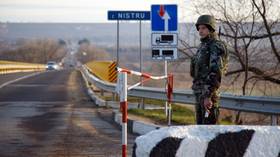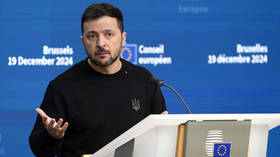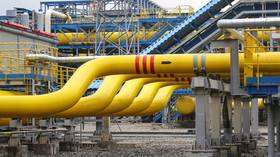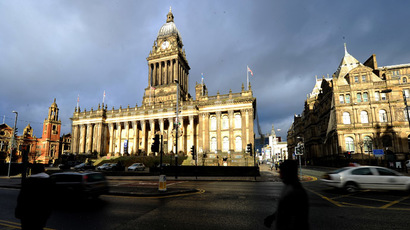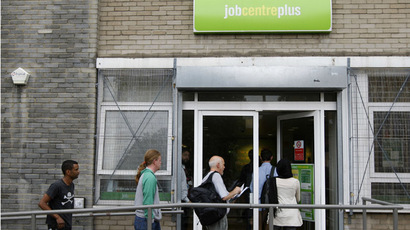UK tops world table for economic growth
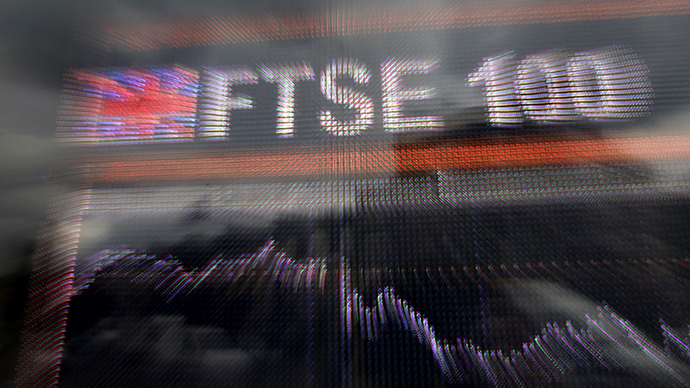
The UK economy is expanding at its fastest rate since 2007, performing better than any other economy in the G7. Despite the GDP boost, critics say that youth unemployment and wage depression point towards far deeper structural issues.
According to figures produced by the Office of National Statistics (ONS) on Friday, GDP grew by 0.8 percent, making the quarter running until the end of June the fastest period of growth since before the financial crash.
Annual growth was revised up to 3.2 percent, 0.1 percent higher than initially predicted by economists.
UK economy now best in the world as new figures show growth http://t.co/DcHweMwEAFpic.twitter.com/ElwIt4zpaX
— Junna (June) (@timeinau) August 15, 2014
Britain’s growth contrasts significantly with the rest of Europe, whose economies ground to a halt, according to official data produced on Thursday. The data analyzing economies within the Eurozone showed a surprise fall in Germany’s GDP, while the French and Italian economies didn’t grow at all.
Commenting on the figures, the Treasury said successive periods of consistent growth confirmed “[the] economy has recovered all of the output it lost in the ‘Great Recession’ and is now bigger than its previous peak in the first quarter of 2008.”
A spokesperson also said strong growth in the economy proved the government’s economic plans ‘were working’ but that the ‘job is not done yet’, signalling that new economic policies – including the possibility of further austerity measures – may be rolled out before next years’ general election.
Updated Chart: Since the launch of the € in 1999, the UK has significantly outgrown the Eurozone pic.twitter.com/fphV3gFCHs
— MineForNothing (@minefornothing) August 14, 2014
The figures show that UK growth was boosted by the services sector, which grew by 1 percent in the second quarter – with the sector expanding by 0.3 per cent in June alone. In contrast, industrial production was revised down to 0.3 per cent, while the construction sector grew by 0.5 percent.
Structural issues persist
Despite the UK’s strong economic performance, the government has been criticized for its failure to tackle structural issues in the economy, including poor records on wage growth and youth unemployment.
On Wednesday, the center-left think tank Public Policy Research (IPPR) said that there were still more than half a million young people unable to find work, while overall unemployment remains above 2 million people.

Additionally, ONS data also showed that Britons are earning less in terms of real wages than they did last year, with average weekly earnings declining by 0.2 percent – the first time wages have declined since 2009.
According to economists at the National Institute for Economic and Social Research (NIESR), wage depression is the result of declining economic productivity in the UK, which is currently below pre-crisis levels.
“The productivity performance, therefore, remains abysmal. With output per hour worked still around 4.5 percent below the pre-crisis peak, we expect pre-crisis productivity levels to be regained only in the latter half of 2017 – although, given the continuing puzzle about the causes of poor productivity performance, large uncertainties remain" a NIESR spokesperson said.
While government ministers remain optimistic about the UK’s economy, Foreign Secretary Phillip Hammond has warned that its good fortunes could be short lived in the wake of the ongoing political crisis between Europe and Russia.
Speaking to Sky News, Hammond warned that sanctions on Russia, which were imposed following the downing of flight MH17 in Eastern Ukraine, could have a huge impact on the UK economy, particularly in the agricultural and energy sectors.







